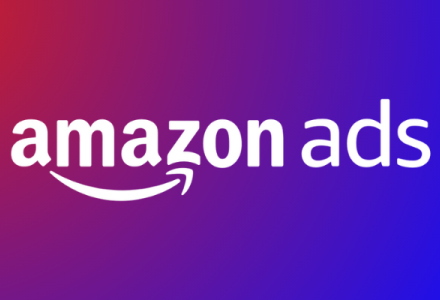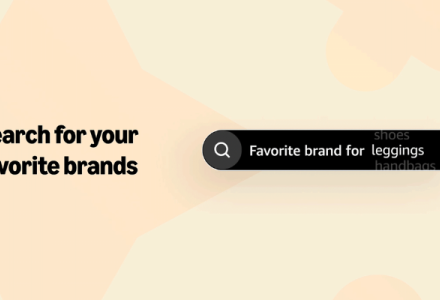Q-commerce can survive if we focus on customers, not speed
Food delivery businesses are now focussed on profit over growth. The problem is that the 'dark store' model that many use is extremely difficult to get to profitability quickly (unless you're in a country where wages are less than around £5-7/hour).
So how can quick commerce food delivery survive, and what are key European players focussed on to find profits?
The 3 key strategies emerging are:
• Partnerships with traditional retailers – speedy-delivery-as-a-service
• Reducing coupons (unless supplier-funded)
• Q-com and food delivery partnerships
Retail partnerships allow food aggregators to expand into non-food categories and receive improved margins. Deliveroo UK is considering further retail partnerships, after partnering with Boots, Lloyds Pharmacy, Better Life, JD Sports and WHSmith. And Deliveroo launched it's first physical retail store in London – Delivery Hop – partnering with Morrisons. You order from 1,750 SKUs on digital kiosks and collect "in minutes", or schedule delivery.
Meanwhile, Uber Eats UK is partnering with Iceland Foods for a 3-store trial of 'Uber Eats Market', what UK GM Matthew Price calls “a new and sustainable approach”. Iceland already offers 30-minute delivery, but this partnership allows Iceland further reach. Uber Eats has also partnered with Co-op in the UK, adding 1,000 stores and 6,000 SKUs. “Our mission is to be the platform of choice across the UK," says Alexander Troughton, Head of E-commerce, Uber Eats.
Boots UK is expanding home and office delivery of toiletries, medicines, food & drink, beauty and gifting from Uber Eats - 900 SKUs from 125 stores. “The original trial in 14 stores was a huge success and gave us the opportunity to learn very quickly what our customers want from a rapid delivery service," says Boots CDO Paula Bobbett.
Q-com and food aggregator partnerships are hot – allowing grocery delivery firms and food aggregators to receive some of the benefits of a merger without actually having to go through a merger. Many scaleups in this space seem to be 'dating each other' and wondering whether a closer long-term relationship will help reach profitability and allow them to succeed.
• Just Eat Takeaway.com has partnered with Getir to list groceries on JET's platform in Germany. There's are plans for this partnership to expand to UK, France, Italy, and Spain.
• Zapp has partnered with Uber Eats to become 'the only 24/7 convenience store in London on Uber Eats'. Zapp offers 'need it now' food items and Zapp Boutique - the non-food premium priced gifting selection.
• Gopuff has also partnered with Uber Eats across the UK. The same partnership was launched in the US in May 2021. GoPuff accesses Uber Eats audience, with deliveries fulfilled by GoPuff.
So what should quick commerce grocery delivery companies do next?
I believe the answer is to stop talking about speed and start to better talk the customer's language.
And that means being a “grocery e-commerce business” not a “quick commerce app”.
Grocery quick commerce startups in the last three years focussed one only one thing: Speed. But here's the problem: grocery shoppers on the whole don't care about speed. Q-com tried to invent a new market. But now it's time to serve the previously existing market of online shoppers with traditional drivers of revenue, profit and loyalty.
Here's what supermarkets have known for decades that customers actually care about:
• Price
• Range
• Quality
• Freshness
• Convenience
Of course, some of these drivers are easier for a Tesco, Carrefour or Walmart to do than a grocery startup - freshness, for example. But there is still plenty of opportunity to re-focus on there areas to meet the majority of online grocery shoppers.
Take, convenience. The q-com operators took 'convenience' to only mean 'speed'. And so much time and money has been spent on making 15-minute and 30-minute deliveries feasible (if not always profitable). But almost no-one if focussed on making the actually shopping experience easier.
Quick commerce apps made shopping for 2-10 items on an app just about bearable. But how about focussing on bigger baskets and building an app experience where choosing 50-80 products from a selection of of thousands is not slow and frustrating. Imagine being able to build a full cart in 5-10 mins, and get your groceries delivered in a reasonable timeframe too. Wouldn't that be a winning proposition?
Let's start super-serving the needs of the profitable majority of grocery baskets, rather that sticking with speed – and struggling with profits. I'm not saying don't deliver same day, or don't have a 'quick' offering. I'm saying, don't market the service ONLY on speed, while missing out on other more important aspects of convenience and other tried-and-tested grocery drivers.
Quick commerce operators and food aggregators are moving fast to find partnerships that bring in more revenue and higher margins, while reducing couponing costs. I believe that what we'll see next is forward-thinking operators re-focus on traditional customer needs and really help people get more of what they want from a food order. Let's just hope the q-com players are quick enough.
This is a guest piece written by Viv Craske, E-commerce Advisor & Consultant
Viv Craske is an e-commerce consultant for CPGs, grocery retailers and FoodTech startups. He is the author of Surviving Digital Disruption, and has worked with Tesco, Albert Heijn, Nestle and Pernod Ricard.
Get in touch with Viv here or visit his website: www.vivcraske.com



